The Computing Research Association (CRA), in consultation with the National Science Foundation (NSF), has appointed six new members to the Computing Community Consortium (CCC) Council:
- Randal Burns, Johns Hopkins University
- David Jensen, University of Massachusetts Amherst
- Rada Mihalcea, University of Michigan
- Raj Rajaraman, Northeastern University
- Matthew Turk, Toyota Technological Institute at Chicago
- Pam Wisniewski, Vanderbilt University
Beginning July 1, the new members will each serve three-year terms. The CCC Council is comprised of 20 members who have expertise in diverse areas of computing. They are instrumental in leading CCC’s visioning programs, which help catalyze and enable ideas for future computing research. Members serve staggered three-year terms that rotate every July.
The CCC and CRA thank those council members whose terms end on June 30 for their exceptional dedication and service to the CCC and to the broader computing research community:
- Elisa Bertino, Purdue University
- Ian Foster
- Chad Jenkins, University of Michigan
- Melanie Mitchell
The CCC encourages participation from all members of the computing research community in our various activities. Each year, the CCC issues a call for proposals for visioning activities. Each spring, the CCC issues a call for nominations for Council members effective the following July. For more information, please visit the CCC website or contact Dr. Ann Schwartz Drobnis, CCC Director, at adrobnis@cra.org.
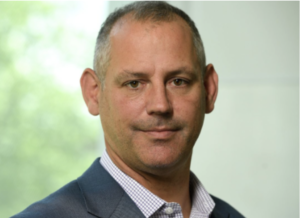
Randal Burns is a Professor and Head of the Department of Computer Science at Johns Hopkins University. His research has pushed the scalability limits of data science based on emergent storage technologies. This has ranged from engineering file systems for storage area networks, building scientific web services on scale-out cloud storage, and developing graph and sparse-matrix engines for machine learning. His work has been inspired by high-throughput science, including numerical simulations for turbulence and neuroscience microscopy. He was a research staff member in storage systems at IBM’s Almaden Research Center from 1996 to 2002. He earned his BS in Geophysics at Stanford University (1993), and his MS (1997) and PhD (2000) in Computer Science at the University of California, Santa Cruz.
______________________________________________________
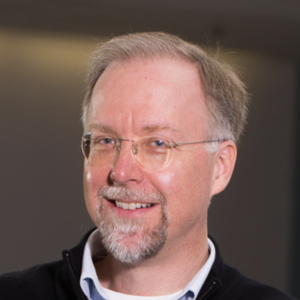
David Jensen is a Professor at the Manning College of Information and Computer Sciences at the University of Massachusetts Amherst where he is the current Director and Founder of the Knowledge Discovery Laboratory. He served as the Director of the Computational Social Science Institute from 2018 to 2022. Jensen’s research focuses on machine learning and causal modeling, with a focus in analyzing large social, technological, and computational systems, with the goals of furthering prediction, explanation, security, and policy decisions.
He currently serves as an action editor for the Journal of Machine Learning Research and has served on the Board of Directors of the ACM Special Interest Group on Knowledge Discovery and Data Mining, the Defense Science Study Group, and DARPA’s Information Science and Technology Group. He received outstanding teaching awards from the UMass College of Natural Sciences in 2011 and from the Manning College of Information and Computer Sciences in 2022. In 2017, one of his papers received the IEEE INFOCOM Test of Time Paper Award. Prior to joining the UMass faculty, he served as an analyst with the Office of Technology Assessment, an agency of the United States Congress. He received his doctoral degree from Washington University in St. Louis in 1992.
______________________________________________________
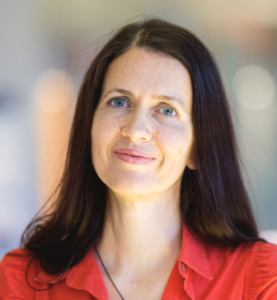
Rada Mihalcea is the Janice M. Jenkins Collegiate Professor of Computer
Science and Engineering at the University of Michigan and the Director of the Michigan Artificial Intelligence Lab. Her research interests are in computational linguistics, with a focus on lexical semantics, computational social sciences, and multimodal language processing. She serves or has served on the editorial boards of the Journals of Computational Linguistics, Language Resources and Evaluations, Natural Language Engineering, Journal of Artificial Intelligence Research, IEEE Transactions on Affective Computing, and Transactions of the Association for Computational Linguistics. She was a program co-chair for Empirical Methods in Natural Language Processing 2009 and Association for Computational Linguistics (ACL) 2011, and a general chair for North American ACL 2015 and *SEM 2019. She directs multiple diversity and mentorship initiatives, including Girls Encoded and the ACL Year-Round Mentorship program. She currently serves as ACL Past President. She is the recipient of a Presidential Early Career Award for Scientists and Engineers awarded by President Obama (2009), and was named an ACM Fellow (2019) and an AAAI Fellow (2021). In 2013, she was made an honorary citizen of her hometown of Cluj-Napoca, Romania.
______________________________________________________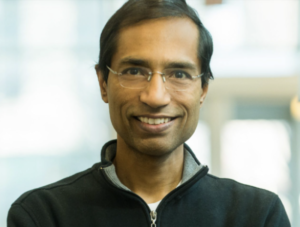
Rajmohan Rajaraman is a Professor and Associate Dean in the Khoury College of Computer Sciences at Northeastern University. He is a member of the Algorithms and Theory group at Northeastern. Rajaraman’s contributions to the field have been widely cited, specifically his research on distributed hash tables, which has been incorporated in peer-to-peer systems. He has obtained important results for fundamental combinatorial optimization problems, including facility location, edge-disjoint paths, multiprocessor scheduling, and dominating sets.
Previously, Rajaraman held positions as a research scientist at Cambridge Mobile Telematics, Google Research, and Akamai Technologies, and as a postdoctoral fellow at the National Science Foundation’s Center for Discrete Mathematics and Theoretical Computer Science (DIMACS). Rajaraman was the recipient of an NSF Career Award and was a co-author of award-winning papers at ACM SPAA, ACM PODC, IEEE ICDCS, and ACM WiSec. He has served as the program chair and track chair for leading conferences in parallel computing and distributed systems. He is an Associate Editor for the journals Theory of Computing Systems and International Journal on Foundations of Computer Science. He earned his Bachelor’s in Computer Science at IIT Kanpur in India, and his PhD in Computer Science at the University of Texas at Austin.
______________________________________________________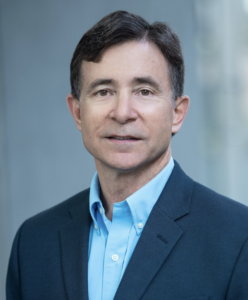
Matthew Turk is the President of the Toyota Technological Institute at Chicago (TTIC), an independent graduate research institute that focuses on fundamental computer science, artificial intelligence, and related areas. Prior to joining TTIC in 2019, Turk was CS department chair at the University of California, Santa Barbara, where he continues as Professor Emeritus. His research interests include computer vision, multimodal interaction, augmented and virtual reality, and ethical and legal aspects of computing. He received a BS from Virginia Tech, an MS from Carnegie Mellon University, and a PhD from the Massachusetts Institute of Technology.
He has received several best paper awards and has been general or program chair of several major conferences, including CVPR, WACV, ICMI, Face and Gesture, and ACM Multimedia. In the 1990s, Turk helped to found the Vision Technology Group at Microsoft Research, and he brings additional industry experience gained in working with a small Silicon Valley company and a large aerospace company. In 2014, he co-founded a startup company that spun out from NSF-funded research in his lab and was acquired in 2016. He is a Fellow of the ACM, the IEEE, and the IAPR and a recipient of the Fulbright-Nokia Distinguished Chair in Information and Communications Technologies.
______________________________________________________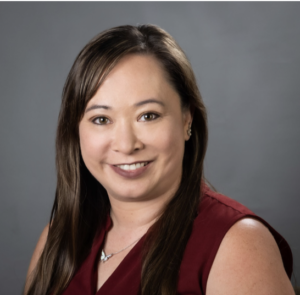
Dr. Pamela Wisniewski is an Associate Professor in Human-Computer Interaction at Vanderbilt University. She is a Flowers Family Faculty Fellow in Engineering and the Director of the Socio-Technical Interaction Research (STIR). Her work lies at the intersection of Social Computing and Privacy. She is an expert in the interplay between social media, privacy, and online safety for adolescents. Dr. Wisniewski has authored over 100 peer-reviewed publications and won multiple best papers (top 1%) and best paper honorable mentions (top 5%) at ACM SIGCHI conferences. She has been awarded $4.69 million in external grant funding, including the NSF CAREER Award, and her research has been featured by popular news media outlets, including ABC News, NPR, Psychology Today, and U.S. News and World Report. She is an ACM Senior Member and the first and only computer scientist to be selected as a William T. Grant Scholar for her work on reducing digital inequality of underprivileged youth.
______________________________________________________
Learn more about the CCC Council and its members on our webpage!









